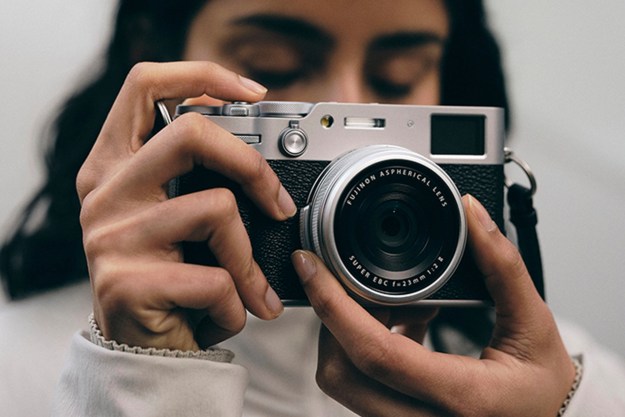Artificial intelligence is improving the quality of smartphone shots, and those same features could soon be coming to DSLRs and mirrorless cameras. Arsenal is am AI-enhanced camera accessory that’s both a highly advanced auto mode as well as a tool to simplify advanced techniques like focus stacking and HDR.
A typical DSLR’s auto mode will use the camera’s built-in meter to set the exposure — but without a photographer to choose the settings, the camera doesn’t know, for example, if the subject is moving or if the scene should be kept sharp with a narrow aperture. Ryan Stout, a software engineer and amateur photographer, trained Arsenal to identify a good image by feeding the program thousands of example images.
The system reads 18 different factors in the surroundings to choose the best exposure settings. That means that, unlike a camera’s built-in auto mode, Arsenal can detect if the subject is moving quickly and increase the shutter speed to prevent blur. The sensor and mini-computer, which sits in the camera’s hot shot slot and is connected via USB cable, also factors in elements like tripod vibration from wind and hyperfocal distance as well as factors from that individual camera and lens, such as the sensor size, dynamic range, image stabilization, and lens diffraction.
While advanced photographers many not want a computer trained to mimic other images taking complete control over everything but the composition, Arsenal includes more than just a fancy auto mode. The Arsenal is connected via Bluetooth to a smartphone app and can also handle a number of more repetitive but less creative tasks, like automatically stacking HDR photos.
The program will also shoot images at multiple focal lengths, and then merge them together using the focus-stacking technique for a sharper image. The prototype can also merge multiple shots to mimic a long exposure without the need for a neutral density filter, as well as shooting timelapses.
With the app, Arsenal also serves as a remote camera release, as well as allowing users to view the files in full resolution. The system is expected to be compatible with Canon, Nikon, Fujifilm, and Sony.
So do photographers really want to automate their DSLRs with AI? The Arsenal’s Kickstarter campaign suggests that at least a few thousand do, with the campaign already raising over $300,000, well past the original $50,000 goal. If the production is successful, early backers can pick up the Arsenal for $150, which is a 40-percent discount from the expected retail price. The campaign is expected to continue until June 22.
Editors' Recommendations
- This AI algorithm could save lives in quake zones
- Can A.I. beat human engineers at designing microchips? Google thinks so
- A learning bias found in kids could help make A.I. technology better




